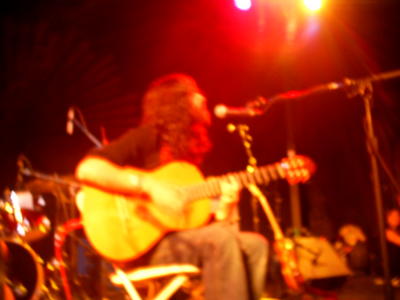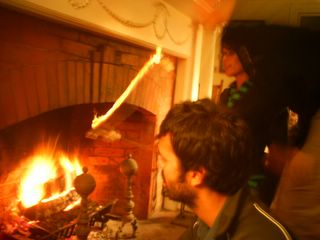In the opening verses of his long poem "
The Prodigal," Derek Walcott invokes a prose-like meter for his lines. Sections of the book suffer flat lines and images. But Walcott is writing a subtle Black Atlantic English, somewhat in correspondence with French and Spanish traditions (Baudelaire, Rimbaud, García Lorca, Borges and the Boom novelists).
"In Autumn, on the train to Pennsylvania,
he placed his book face-down on the sunlit seat
and it began to move. Metre established,
carried on calm parallels, he preferred to read
the paragraphs, the gliding blocks of stanzas
framed by the widening windows—
Italian light on the factories, October's
motley in Jersey, wild fans of trees, the blue
metallic Hudson, and in the turning aureate afternoon,
dusk on rose brickwork as if it were Siena."
With over 100 pages of these lines the intent is epic in the most reduced manner possible. The voice a register of locations, bodies, images semi-dissolved in memory as they happen. Old age and the separation of text and self. The ennumeration of what places the poem can imagine, even a semi-nightmare excursion in Colombia, armed escort inland from the coast. The effect of prose in its concise idioms.
I read a different engagement with travel and location in Juan Sánchez Peláez's later work. The prose poems in Sánchez Peláez's collection
Rasgos comunes (1975). Its mood evokes a quality the critic Antonio López Ortega identifies in another poem from that collection, in his essay "
Carta de Caracas." Experiencing (as we do today) a spiritual and political lack in oneself, the nation invoked through silence, as a function of poetry's hermetic yet public methods in Venezuela. Anticipating the bleakness and grace of his final handful of poems published in 2001 in
El Universal's literary supplement,
Verbigracia.
The poet absolves himself from any specific location, an internal exile, a series of journeys relived or foreseen, imagined or remembered. This intuition of quantum distortions of time occasionally contained, maybe sketched, by the prose. A flat, near-invisible tone framing the poems. A political awareness of saturation, a decline of vision (self or society) even amidst order or wealth. The wealth eventually becoming words, phrases locked by the text.
Sánchez Peláez writes a Venezuelan surrealism that occurs minimally, poised as in a wilderness, the city shadowed by Monte Ávila's green hovering tsunami. The poem made in Caracas also includes Iowa, New York, Liverpool and Paris in its trajectories. The penultimate city showing up in his final book
Aire sobre el aire (1989). "Los viejos"* serves as a prologue to the title poem sequence, autumnal paring down of a collection to 14 poems. The dream or song of old people living in a hotel in Liverpool in this excerpt, prose instants:
"en una aldea que
pertenece a la luna
o en un hotel de Liverpool
no hay sino instantes
no vengan a contradecirme
mis pensamientos
vanos
hay eso
que sobra
nos falta
y
zozobra"
_______________________________________________
* An earlier version of this poem was published in Mexico by Octavio Paz's magazine
Vuelta (July 1987).








